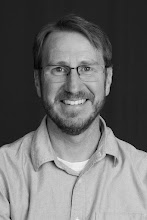I thought it would be helpful to provide an update on my Sept. 12th blog entry, "Making time to write". At that time I was just starting to roll out of bed early. Now, three months later, I am astounded how much I've accomplished and the ideas that are emerging.
In these short months, I've written and submitted two articles to academic journals; both are currently undergoing peer review. I sent one to Teaching Theology and Religion and another to Canadian Military Journal. Now I am in the final stages of editing my PhD dissertation for publication. By the end of the month I will submit it to Wipf and Stock. My editor is concerned with the title, "In Vitro Education" so I am revising it to be less edgy and more mysterious. I'm toying with the term "Glassroom" as a way to hold onto "In vitro" (meaning "within the glass" or "inside glass") while avoiding the ideas associated with fertilization. I am aiming to submit my manuscript at the end of this month and the title may be something like "Glassroom Learning: virtual culture and online pastoral education".
In the new year I have more projects to tend. I've committed to review two books: one on multivocational ministry for Faith Today and the other deals with chaplaincy and spiritual care for Religious Studies Review (RSR). I am also hoping to start two book projects, one on technology and theology with my colleague, Joel Houston, and the other on multivocational ministry.
It may sound strange but I think these ideas are from God. They seem to be part of my new vocation as a professor and academic administrator. I have such clear ideas about things to write about and the energy and capacity to do them, I'm becoming convinced they are part of a calling into academic service; they are truly gifts from God. I'm grateful for this new calling and I look forward to seeing these projects and others become reality.






















